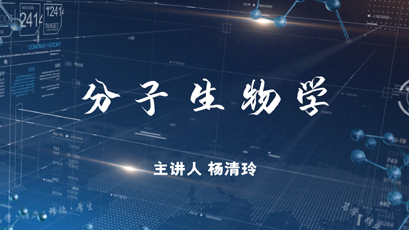
当前课程知识点:Tourism Policy and Planning(International Edition) > Week 2 Overview of Tourism Planning > 2.2 History of Tourism Planning Globally and Domestically > 2.2.2 Participants in Tourism Planning
返回《Tourism Policy and Planning(International Edition)》慕课在线视频课程列表
返回《Tourism Policy and Planning(International Edition)》慕课在线视频列表
上节课
我们讨论了世界和中国旅游规划的历史
历史是一个很享受的故事
但这节课 我要告诉你
接下来会比较难
但是 也不要太担心
当我们想做一个旅游规划时
我们需要不同学科的帮助
包括许多科学家或社会学家
因此 我认为我们需要对旅游系统的理解来为旅游规划提供理论支持
至少 我们需要地理 历史 心理学
环境研究或生态学 甚至考古学等
完全不同学科的帮助
为什么我们需要这么多人聚在一起制定旅游规划
规划或目的地的核心是什么
请记住 是产品
什么是旅游产品
它至少包括吸引物 设施和服务
我们只讨论吸引物
吸引物很复杂
它包括自然资源吸引物 历史题材吸引物
人类学的吸引物等等
所以 我们需要很多人来帮助我们
为什么地理学对旅游规划很重要
地理学谈论空间
人与自然的关系
人与环境的关系
所以 旅游规划要把所有的东西串联一起
来吸引人们从一个国家到另一个国家
人们在空间中移动
因此 地理学家在旅游规划非常重要
对于历史 考古学或遗产研究而言
它们可以帮助旅游规划师更好地了解
长城 埃及的金字塔或意大利的古老建筑
所以历史或考古学对旅游规划也是非常重要的
但我们也需要一些经济学 公共管理
或企业管理的研究来帮助我们
因为旅游业是一项生意
人们想从酒店 游轮和景点中盈利
所以我们需要做一些会计工作
心理学能够为旅游规划带来什么呢
谁来支撑我们的产业呢
当然是游客
不同的游客有不同的偏好
女性喜欢购物的程度要明显多于男性
为什么
孩子喜欢做什么事情
他们不喜欢去那些没有儿童语言导览的博物馆
所以 他们喜欢玩中带学的教育方式
因此 行为学和消费者行为研究需要心理学的帮助
生态学能为旅游规划带来什么
很多人喜欢去自然景区或天然度假村
为什么鸟会在不同的季节回来
为什么鳄鱼只出现在特定的区域
所以 这是生态知识
我们有一些特殊的游客称为生态游客
他们喜欢登山或徒步
在中文里 我们称之为“Lv you” 有点像“驴友”
意思是非常接近原生态
社会学和人类学能为我们做什么
他们可以帮助我们更好地理解旅游
使更多的当地人参与进来 并参与决策
也帮助更多的人去到一个非常偏远的地区
当地的文化可能非常 非常脆弱
我们希望人类学家能帮助我们保存更多具有本真性的东西
或让其能够长期保存
我们不希望当外地人来到这里后
当地的文化却消失了
这是错误的
我们希望很多人一起来帮助我们
在旅游规划研究的历史上
人们发现许多理论是相当不同的
例如旅游功能系统模型从克莱尔·冈恩
我之前提到过他 他是旅游规划领域非常重要的人
他提出了一个需求供给的模型
在供应方面 包括吸引 促销 运输 信息和服务
所有这些因素结合在一起 使目的地具有了吸引力
方便了外地游客的可进入性
这是一个功能系统
目的是让目的地能够运行
这是冈恩的一个非常重要的系统模型
巴特勒在1980年提出了旅游区的生命周期
那是我刚步入大学第一年
如PPT所示 这个理论告诉人们
旅游目的地发展有不同的阶段
从探索到发展 到成熟 或再更新 或消退阶段
因此 关于生命周期 许多目的地或景点
都经历了不同的阶段
但是不同类型的景点可能对这个模型有不同的解释
因为对于长城或埃及的金字塔来说
它们的生命周期可能非常长
你无法想象没有人到访长城的景象
但是对于一些主题公园来说
短暂生命周期中 体验将更具挑战性
因为这需要更多的投资 需要更多的创新
这是主题公园的吸引力所在
因此 生命周期对不同的吸引物是不同的
第三个模型是来自Baud Bovy
他提出的这个模型是告诉人们 什么是产品或休闲产品
我认为休闲产品包含休闲和旅游
这个模型告诉人们一个非常复杂的过程
我不喜欢在这些内容上花费太多的时间
你可以通过查阅书本获得这些知识
第四个理论是来自于Murphy
他是一个在世界上很有名的人 他很关心当地社区
他强调当人们 或政府 或投资者做一个旅游计划时
应该听取当地人的意见
并尽可能地深度挖掘
并展示具有当地文化或本真性东西进行展示
一些社会学家不喜欢舞台表演
但对于旅游业来说 可能舞台表演是非常重要的
或是旅游系统运行中所必需的
所以 墨菲定理中提到一点
那就是需要倾听 观察 并与当地人分享利益
因此 他的理论在今天也很重要
因为今天的人们想要更多的自由和平等 诸如此类
最后 但并非最不重要的是我自己提出模型
这个叫做RMP模型 分别是指资源(R) 市场(M)和产品(P)
把这三个元素结合在一起
因此 RMP模型意味着我们对客户做任何规划和建议
你要在你规划前做两件事情
那就是资源分析和市场分析
资源分析意味着你进行很多现场调研工作
或者在现场调研后 你要在实验室里做非常多的计算或者现场评估
这就是资源研究
第二就是市场分析
目标市场在哪里
我们都知道日本或韩国
韩国市场对于中国市场是存在吸引力的
但是 有太多不同的方面还需要深入了解
而日本市场细分中哪些才是中国最重要的市场呢
对于上海 西安或桂林来说
日本市场又是不同的
因为这三个目的地城市的产品有很大的差异
所有在我们提交给客户的规划报告中建议
最重要的就是产品
产品定义或框架
是在研究资源和市场的之上提出来的
因此 产品本身也可以从不同的方面进行评估
这就是RMP模型
因此 在本课程中
我们探讨了旅游学术研究的可能性
涉及了不同的学科角度
以及旅游规划的一些重要理论或模型
谢谢大家
-1.1 Tourism Planning and Policy
--1.1.1 Link Between Policy and Plans
--1.1.2 Tourism Policy Is Influenced by Multi-sectoral Links
--1.1.3 Policies Are "Wish Lists."
--1.1.4 Policies Impacting the Tourism Sector
--1.1.5 Who Formulates Policies?
--Discussion: Is Tourism Policy Sustainable in Your Respective Countries/Regions?
-1.2 Planning Principles
--1.2.2 Reasons for a Tourism Plan
--1.2.3 Planning Principles (1)
--1.2.4 Planning Principles (2)
--Article:Tourism Policy and Planning for Developing Countries
-1.3 Strategic Planning at Different Levels
--1.3.1 Planning at Different Levels
--1.3.2 Planning for Tourism in the Future
--Week 1 Quiz
-2.1 Planning in the Context of Tourism Development
--2.1.2 Tourism Planning for Destination Development and Management
-2.2 History of Tourism Planning Globally and Domestically
--2.2.1 Global and Domestic History of Tourism Planning
--2.2.2 Participants in Tourism Planning
--2.2.3 What's the Difference about Tourism Planning between China and the Western Country?
--Discussion: What's the Difference about Tourism Planning between China and the Western Country?
-2.3 Tourism Planning Processes and Practices
--2.3.1 Theory and Practice of Tourism Planning
--2.3.2 Resource Inventory and Demand Analysis
--2.3.3 Structure Planning for Tourism Growth
--2.3.4 Planning for Tourism Products
--2.3.5 Planning for Supply System and Regulation
--Article: Climate Change and Tourism: A Scientometric Analysis Using CiteSpace
-2.4 Changing Trends in Tourism Planning
--2.4.1 Changing Trends in Tourism Planning
--2.4.2 How Should China Develop Domestic Tourism in the Belt and Road Initiative?
--Week 2 Quiz
-3.1 Tourism Destination Area Planning
--3.1.1 The Key Terms of Tourism Destination Area Planning
--3.1.2 Tourism Destination Area Planning Approaches
--3.1.3 Tourism Destination Area Planning Process And Some Key Tools, Some Readings
--3.1.4 Tourism Destination Area Planning Process And Some Key Tools, Some Readings
-3.2 Sustainable Tourism Product Development
--3.2.1 The Key Terms & Framework of Sustainable Tourism Product Development
--3.2.2 Sustainable Destination Product Development Process
-3.3 Developing Tourism Events & Experiences
--3.3.1 Assessing And Evaluating Destination Plans
-3.4 Assessing and Evaluating Destination Plans
--3.4.1 Assessing And Evaluating Destination Plans
-3.5 The Hot Topics of Tourism Planning Technology
--3.5.1 What Should Be Pay Attention to When We Make Tourism Planning in China?
--3.5.2 How to Improve Tourism Experience During Tourism Planning Process
--3.5.3 What Are the Impact And Challenge of AI Technology to Tourism Planning?
--3.5.4 How Should We Developed Community Based Tourism Planning?
--Week 3 Quiz
-4.1 An Introduction to Tourism Impacts
--4.1.1 An Introduction to Tourism Impacts(1)
--4.1.2 An Introduction to Tourism Impacts(2)
--Discussion:Where Are You Coming From and Why Are You Taking This Course?
-4.2 The Economic Impacts of Tourism
--4.2.1The Economic Impacts of Tourism(1)
--4.2.2 The Economic Impacts of Tourism(2)
--Discussion:Could You Describe Both the Positive And Negative Aspects of Economic Impacts In Your Own
-4.3 The Socio-cultural Impacts of Tourism
--4.3.1 The Socio-cultural Impacts of Tourism
--Discussion:Could You Explain TheThree Specific Phenomena About Socio-cultural Impact
-4.4 The Environmental Impacts of Tourism
--4.4.1 The Environmental Impacts of Tourism
--Discussion:How Can Tourism Development Contribute or Make A Damage to The Environment Are Explained?
--Week 4 Quiz
-5.1 Host-guest Interaction and Tourism Development in Two Regions: Yunnan Province and Overseas
--5.1.1 Yunnan Province Tourism Development Master Plan 2011-2020
--5.1.2 IMT-GT Tourism Sector Strategy 2017-2036
-5.2 From Capacity to Overtourism
--5.2.1 The Study of Tourism Impacts
--5.2.2 Tourism Context and Impacts
--5.2.3 Measurement of Impacts
--5.2.4 Management Approaches and Related Concepts (1)
--5.2.5 Management Approaches and Related Concepts (2)
--Discussion: What is carrying capacity?
--5.2.6 Visitor Management Models (1)
--5.2.7 Visitor Management Models (2)
--Article: Behind the Masks: Tourism and Community in Sardinia
-5.3 Tourism Planning and Holistic Tourism: Governance and Innovation for A Destination Country
--5.3.1 Holistic Tourism: A Destination Governance Tool
--5.3.2 How Should Rural Area Benefit from Holistic Tourism?
--Week 5 Quiz
--Final Discussion and Reflection
--Final Quiz

